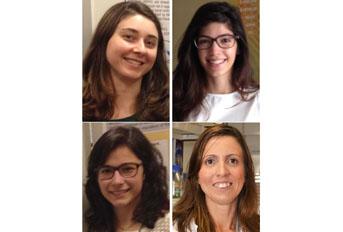Associação Portuguesa de Investigação em Cancro
REDOX regulatory systems in cancer
REDOX regulatory systems in cancer

Antioxidant proteins that constitute our REDOX regulatory systems play an important role in cell and overall organism integrity. Tumours are typically subjected to increased oxidative stress during their development. In this work we did a comprehensive analysis of the current literature (published by our group and other colleagues) where we show that diverse antioxidant proteins are also essential for promoting tumour progression.
Stéphanie Anais Castaldo, Joana Raquel Freitas, Nadine Vasconcelos Conchinha, Patrícia Alexandra Madureira
Centre for Biomedical Research (CBMR), Universidade do Algarve, Campus de Gambelas Edifício 8, sala 2.22, 8005-099 Faro, Portugal Website do laboratório: http://cbmr.ualg.pt/research/oncobiol/patriciam/
The cellular REDOX regulatory systems play a central role in maintaining REDOX homeostasis that is crucial for cell integrity, survival, and proliferation. To date, a substantial amount of data has demonstrated that cancer cells typically undergo increasing oxidative stress as the tumor develops, upregulating these important antioxidant systems in order to survive, proliferate, and metastasize under these extreme oxidative stress conditions. Since a large number of chemotherapeutic agents currently used in the clinic rely on the induction of ROS overload or change of ROS quality to kill the tumor, the cancer cell REDOX adaptation represents a significant obstacle to conventional chemotherapy. In this review we will first examine the different factors that contribute to the enhanced oxidative stress generally observed within the tumor microenvironment. We will then make a comprehensive assessment of the current literature regarding the main antioxidant proteins and systems that have been shown to be positively associated with tumor progression and chemoresistance. Finally we will make an analysis of commonly used chemotherapeutic drugs that induce ROS. The current knowledge of cancer cell REDOX adaptation raises the issue of developing novel and more effective therapies for these tumors that are usually resistant to conventional ROS inducing chemotherapy.
Journal: Oxidative Medicine and Cellular Longevity




